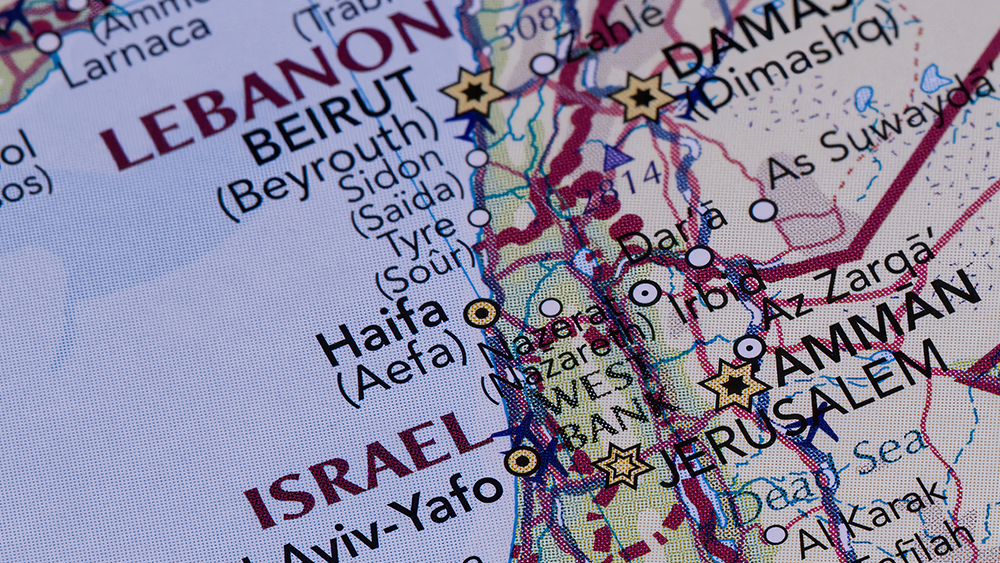Israel’s relentless attacks on Lebanon defy ceasefire, killing civilians and soldiers
- Israel continues attacks on Lebanon despite the November ceasefire, killing civilians and violating the truce more than 2,700 times.
- Hezbollah refuses disarmament while Israel occupies Lebanese territory, escalating tensions.
- Israeli airstrikes target civilians and infrastructure, mirroring tactics used in Gaza, with war crimes allegations.
- The U.S. pressures Lebanon to dismantle Hezbollah while supporting Israel militarily and politically.
- The cycle of occupation and resistance risks perpetual war, with global powers enabling Israel’s aggression.
Despite a ceasefire agreement brokered in November, Israel has continued its deadly assaults on southern Lebanon, killing civilians and Hezbollah fighters while refusing to fully withdraw from occupied territories. The ongoing violence — part of Israel’s broader campaign of regional aggression, including its genocide in Gaza — has left Lebanese communities in ruins and risks further destabilizing the Middle East.
Yesterday, Israeli airstrikes targeted multiple towns in southern Lebanon, killing at least two people and wounding several others. Among the dead was a civilian working in his field in Houla, whose home had been repeatedly struck by Israeli forces. Meanwhile, unexploded Israeli ordnance detonated near a Lebanese military vehicle, killing four, including soldiers, in a grim reminder of the long-term dangers of Israel’s relentless bombardment.
A broken ceasefire in name only
Since the November 2024 truce, Israel has violated the ceasefire more than 2,700 times, according to reports. The agreement called for both Hezbollah and Israel to withdraw from southern Lebanon, with Lebanese forces taking over security. While Hezbollah has reportedly ceded 190 of its 265 positions, Israel maintains five illegal outposts on Lebanese soil.
Hezbollah’s acting leader, Sheikh Naim Qassem, has refused disarmament demands, stating, “We will not let anyone disarm Hezbollah or disarm the resistance.” He argued that Lebanon cannot discuss defense strategies while under occupation, adding, “Israel must withdraw and cease its aggression.” The U.S., meanwhile, has pressured Lebanon to dismantle Hezbollah, with envoy Morgan Ortagus insisting Beirut must “fully fulfil the cessation of hostilities” by disarming militias.
Israel’s attacks extend beyond targeting Hezbollah. Its strikes repeatedly kill civilians and destroy infrastructure, replicating tactics honed in Gaza and the West Bank. The recent assassination of Hussein Ali Nasr, a Hezbollah weapons official, mirrors a pattern of extrajudicial killings that flout international law. Israel justifies such strikes by labeling all resistance activity as terrorism, yet its own military actions — including the use of white phosphorus and cluster munitions — have been condemned as war crimes.
The human toll is devastating. Since the ceasefire, at least 71 Lebanese civilians, including women and children, have been killed by Israeli strikes, according UN reports. Unexploded ordnance continues to maim and kill long after bombs fall. Meanwhile, Israel markets its “battle-tested” weapons to global buyers, showcasing their lethal efficiency against occupied populations.
The cycle of violence mirrors past Middle East conflicts where military escalation led to unintended consequences. Israel’s 1982 invasion of Lebanon birthed Hezbollah; its 2006 war strengthened the group. Today, its refusal to end occupations in Gaza, the West Bank, and Lebanon only fuels resistance.
Despite global condemnation, Israel’s apartheid regime persists, emboldened by Western support. Even as half of Gaza lies in ruins and Lebanon’s south burns, the U.S. and EU deepen ties with Israel, prioritizing arms deals over human rights. The result is a region on the brink — where civilians pay the price for geopolitical brinkmanship.
A future of perpetual war?
Hezbollah’s stance reflects a disturbing reality: no party will surrender under fire. Yet Israel’s insistence on military dominance ensures no lasting peace. With far-right leaders like Benjamin Netanyahu in power and Ukraine’s Zelenskyy praising Israel as a model, ethnonationalism is spreading—armed by Israel’s weapons industry.
As long as occupation continues, so will resistance. And as long as global powers excuse Israel’s atrocities, the bloodshed will spiral. The world cannot afford another forever war, but without justice, Lebanon’s suffering will be just one more chapter in Israel’s violent experiment.
Sources for this article include:
TheCradle.co
APNews.com
France24.com
Read full article here


